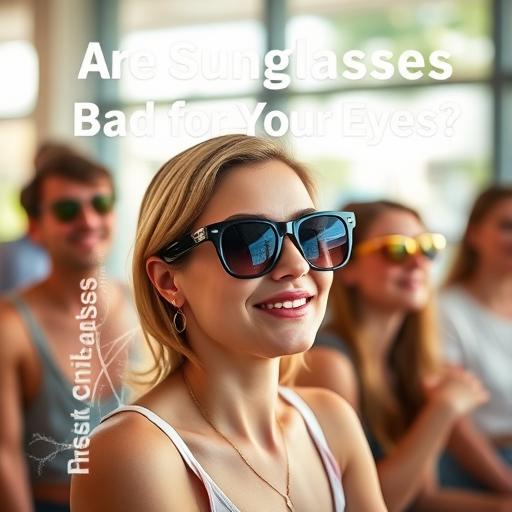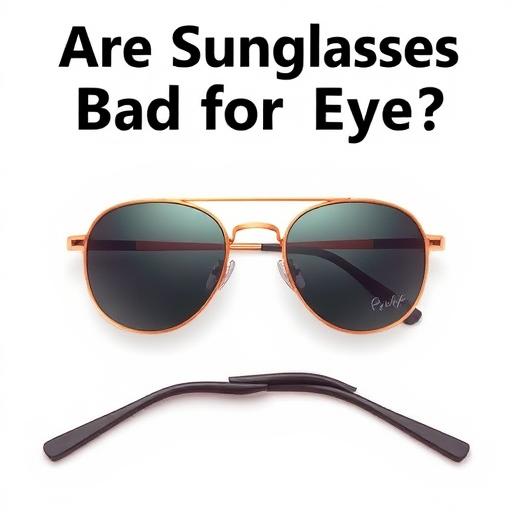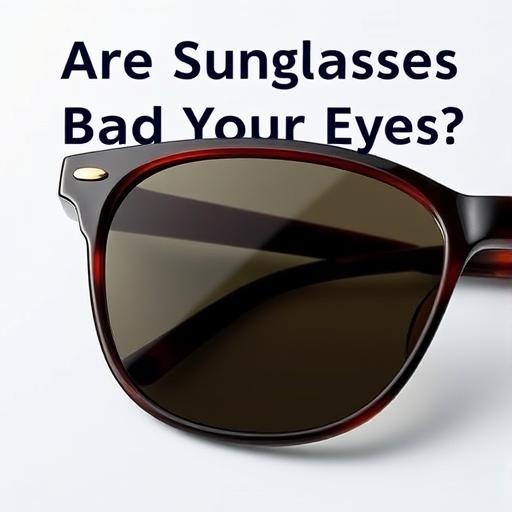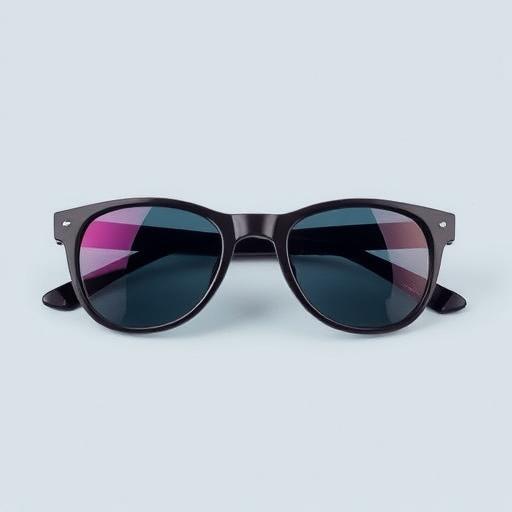Are Sunglasses Bad for Your Eyes

Sunglasses are often seen as a fashion staple, but their role in protecting our eyes from the sun’s harsh rays is equally vital. Many people wonder if wearing sunglasses could somehow harm their vision, especially when they overdo it or opt for cheap, poorly designed frames. While it’s true that not all sunglasses are created equal, the reality is that properly chosen and used sunglasses can shield your eyes from serious damage. The key lies in understanding what makes sunglasses beneficial—or harmful—and how to use them wisely.
Step-by-Step Process
Understand UV Protection
Check if sunglasses block 100% UVA/UVB rays to prevent eye damage.
Choose Proper Fit
Ensure sunglasses fit snugly to avoid light leakage around the eyes.
Select Lens Tint
Opt for neutral tints like gray or brown for accurate color perception.
Avoid Low-Quality Lenses
Cheap lenses may distort vision or lack UV protection.
Wear Sunglasses Correctly
Use them outdoors and replace scratched or damaged lenses promptly.
Process infographic for Are Sunglasses Bad for Your Eyes
The Importance of Eye Protection
UV Radiation and Eye Damage
Ultraviolet (UV) radiation from the sun is a silent threat to eye health. Prolonged exposure can lead to conditions like cataracts, macular degeneration, and even ocular melanoma. UV rays can also cause photokeratitis, a painful sunburn of the cornea. Fortunately, sunglasses with UV protection act as a barrier, filtering out these harmful rays and reducing the risk of long-term eye damage.
How Sunglasses Protect Your Eyes
Quality sunglasses don’t just enhance your style—they defend against UV radiation, glare, and debris. By blocking UV light, they help prevent the breakdown of proteins and tissues in the eye that contributes to cataracts and age-related degeneration. Polarized lenses, for instance, reduce glare from reflective surfaces like water or roads, making outdoor activities safer and more comfortable while preserving visual clarity.
Potential Risks Associated with Sunglasses
Overreliance on Sunglasses
Wearing sunglasses excessively, especially in low-light settings, can strain your eyes by limiting the amount of natural light they receive. Lenses that are too dark without UV protection can cause your pupils to dilate, letting in more UV radiation and increasing the risk of damage. It’s important to use sunglasses only when necessary and to choose ones with appropriate UV filtration.

Poorly Made or Counterfeit Sunglasses
Counterfeit sunglasses often lack the UV protection advertised, sometimes allowing harmful rays to pass through unfiltered. Low-quality lenses can distort vision, causing headaches or eye fatigue. Always purchase sunglasses from trusted brands or retailers and verify their UV protection claims to avoid unintentionally exposing your eyes to greater risk.
Choosing the Right Sunglasses
Look for UV Protection
100% UV protection should be your top priority when selecting sunglasses. Check for labels stating “UV400” or “100% UVA/UVB protection,” which indicate the lenses block both UVA and UVB rays. If unsure, consult an optician or look for certifications from organizations like the American National Standards Institute (ANSI).
Consider the Lens Material and Color
Lens material affects durability and clarity. Polycarbonate or CR-39 lenses are lightweight and offer excellent impact resistance. Lens color matters too: gray or green tints provide true color perception, while brown or amber enhance contrast. Avoid lenses that are excessively dark or tinted without UV protection, as they may do more harm than good.

Best Practices for Wearing Sunglasses
Wear Sunglasses Correctly
Use sunglasses when UV exposure is high, such as during peak sunlight hours, at the beach, or while driving. Remove them indoors or in dim lighting to prevent unnecessary eye strain. Avoid sharing sunglasses, as they can transfer bacteria, especially when touching lenses with unclean hands.
Maintain Your Sunglasses
Clean your lenses regularly with a microfiber cloth and lens solution to prevent scratches and smudges. Avoid using harsh chemicals or abrasive materials. Store them in a protective case when not in use, and replace them if the UV protection degrades or the lenses become scratched, which can impair vision and reduce effectiveness.
Conclusion
Sunglasses are not inherently bad for your eyes but are essential for protecting them from UV radiation and environmental stressors. The risks arise only when you choose poorly made or overly dark lenses or misuse them. By selecting sunglasses with 100% UV protection, proper lens materials, and following usage guidelines, you can safeguard your vision while enjoying the outdoors. Prioritize quality over trends to ensure your sunglasses work as both a stylish accessory and a health necessity.
FAQs
- Q: Can wearing sunglasses weaken my eyes?
- Q: Are polarized lenses better for my eyes?
A: No, wearing sunglasses that provide UV protection will not weaken your eyes. In fact, it can help prevent eye damage and reduce the risk of eye problems.

A: Polarized lenses can be beneficial for people who spend a lot of time outdoors, especially while driving or participating in water sports. However, they may not be suitable for everyone, such as pilots or people who need to read LCD screens.
A: No, it is not recommended to wear sunglasses at night, as they can reduce the amount of light that enters your eyes and make it harder to see in low-light conditions.
A: Not necessarily. While expensive sunglasses may have better optics and more stylish designs, it is more important to choose sunglasses that provide 100% UV protection, regardless of the price.
